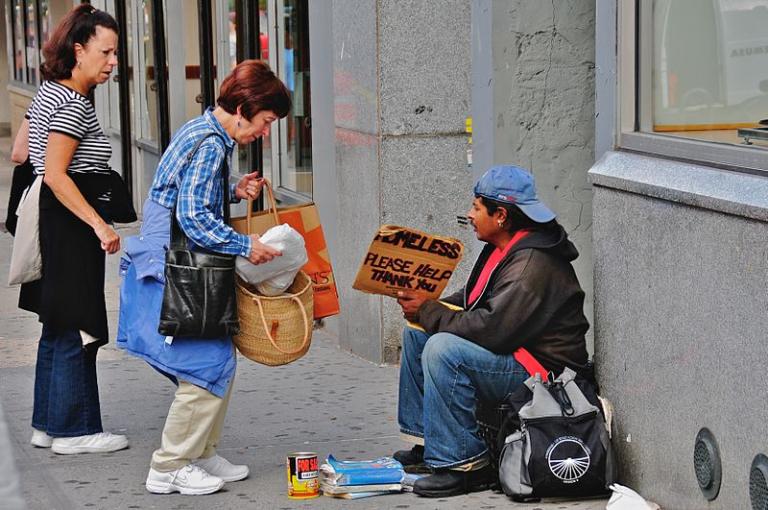which is, apparently, the new terminology that supporters of an increased per-child tax credit are promoting, per a National Review article on a forthcoming “tax reform” plan. (And, yes, I’ve put “tax reform” in quotes because I hesitate to apply that label to any given set of tax changes, regardless of whether they improve the system or just favor a particular set of constituents.)
Now, if you google “parent penalty” you’ll see that it was the subject of a National Bureau of Economic Research report from 2000, “The Middle Class Parent Penalty: Child Benefits in the U.S. Tax Code.” In that report, “parent penalty” was used with respect to the drop-off in benefits in the tax code as one goes from low-income (receiving the EITC) to middle-income (phase out of the EITC, but moderate benefits from child tax credits — this was in 2000 to before these were refundable) and prior to the climb for upper-income taxpayers (using the concept of “tax expenditures,” they benefit more from the exemptions for children).
I wrote about tax reform just a month ago: here I walked through the types of “tax expenditures,” here I pulled up the legal definition of “tax expenditure,” and here I criticized the concept of the “tax credit” and said that, no matter what you think of particular types of tax credits (for children, hybrid cars, whatever you want), you shouldn’t really think of these as a part of the tax system at all, and certainly not as a part of “tax reform,” but as a part of government benefits.
(And, for the record, I don’t have objections to the general concept of a child benefit, though I don’t think we need it, either, bearing in mind that the Europeans have mostly instituted this because they want to boost their birth rate, and our birth rate is doing just fine. (Kay Hymowitz tweeted the latest projections from the Census Bureau; we can of course discuss the fact that foreign-born Hispanic women have a birth rate far higher than anyone else, another time.)
Now, as a way of rationalizing additional benefits to parents (and non-refundable credits, the better to ensure that they benefit the middle-class rather than the poor), the forthcoming Lee/Rubio “tax reform” plan tries to create a new concept, that parents are “penalized” and double-taxed, for both paying taxes themselves, and raising the next generation of taxpayers, who we will all depend on to someday pay our Social Security benefits; hence, they deserve significantly increased child tax credits. This is a bad concept, both because it just doesn’t work, and because it’s snaky and ultimately gives the impression that not only are Lee and Rubio favoring their constitutents, they’re not even being honest about it.
Look — it’s true that those children, when they grow up, will be taxpayers. And when they retire, the next generation will be paying for their Social Security. That’s the way it works. But in no way am I, as parent, somehow paying future taxes because my offspring will be a taxpayer. Making that claim is itself a double-counting of tax payments, to credit my children’s future taxes back to me.
I get that it feels unfair to see those who are childless gallivanting off to Paris, or going out to dinner at Cooper’s Hawk rather than Steak & Shake. Really, when I read Megan McArdle’s food posts, or her causal mentions of travel and dining out — well, I don’t regret being a parent but I do look forward to empty-nester-hood just a bit more. But, heck, all the additional government benefits in the world aren’t going to fund more babysitting or meals out or plane tickets and hotel rooms for five rather than two — much less can they wave a magic wand and take away the worries of parenthood: will my kid make it through high school and college and successfully navigate the adult world?
At the same time, is child-rearing really just a societal obligation that the responsible among us take on, and the slackers don’t and freeload? That’s not the right answer either, even though, yes, the childless-by-choice among us freely admit that they don’t want the work that comes with having kids.
Let’s face it: the role of government is not to be “fair,” and certainly not to make life “fair,” in general. Yes, it’s “unfair” that the childless have a lot more fun, but someday will depend on kind-hearted nieces or nephews or neighbors. It’s also unfair that a person can spend a lifetime working at a factory that closes, leaving them ill-equipped to find another job. It’s unfair that a single mother qualifies for welfare benefits that her married sister, even if in similar economic straights, doesn’t. All manner of things are unfair.
But as long as it doesn’t extend from “unfair” to unjust, then the proper response is to stop whining and suck it up, and evaluate whether the proposed benefit is right in terms of its overall impact on American society, the economy, and the budget.













